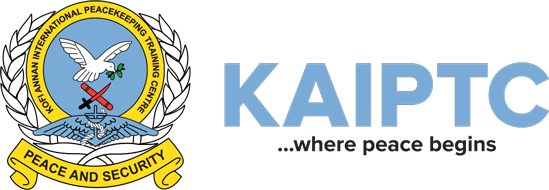A two-week course on Developing a Maritime Security Culture in the Gulf of Guinea, organised by the Kofi Annan International Peace Keeping Centre (KAIPC), has opened in the Western Region capital of Takoradi.
The pilot course is the first of the capacity building outputs project on enhancing regional research, capacity building and convening of stakeholders toward a safer maritime domain in the Gulf of Guinea. It was attended by the Navy, Judiciary, Marine Police, Fisheries Commission, private shipping companies and Civil Society Organisations.
Major General Francis Ofori, Commander at the Kofi Annan International Peace Keeping Centre (KAIPC), noted that some of the maritime crimes are illegal, unreported and unregulated fishing; human trafficking and migrant smuggling; marine pollution or toxic waste dumping; illicit trade in arms, drugs and contraband; as well as maritime terrorism.
He explained that these illegal activities exploit inadequate control of the region’s maritime domain, which revolves around inadequate law enforcement capacity. He said the pervasiveness of maritime security threats across the region therefore illustrates the need for a holistic approach to maritime security response in the region.
Commodore (Rtd) Albert Bentil Addison, Former Deputy Commandant of KAIPTC, said Takoradi and its environs have had their fair share of maritime challenges – ranging from piracy and armed robbery at sea, unregulated fishing, human smuggling and illegal bunkering.
“History tells us that the fight at sea cannot be won singlehandedly by the nation or an institution; it takes effective collaboration, cooperation, coordination and capacity building among the littoral nations, and more importantly key prime institutions – of which most are represented here – to win the battle against maritime insecurity.
“With the Gulf of Guinea identified as the leading hotspot for piracy, kidnapping and armed robbery cases at sea,” Major General Francis Ofori, Commander at KAIPC said, “the Gulf of Guinea accounted for approximately 90 percent of global kidnappings with 49 crew members kidnapped in nine separate incidents. The pirates’ modus operandi indicates a noticeable shift from oil-theft toward kidnapping for ransom,” he said.
The International Maritime Bureau’s (IMB) first quarter report of 2020 revealed that there has been a 25 percent increase in piracy and armed robbery worldwide compared to 2019 figures for the same quarter. “This is buttressed by 2019 and 2020 figures which indicate a big climb in the number of kidnapping incidents in the region, and an increase in the number of hostages being taken overall,” he added.
According to him, the situation has raised concerns about oil installations, container traffic and tanker movements through the region.










